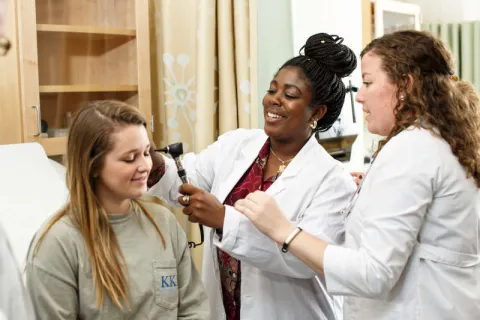
What Does a Family Nurse Practitioner Do?
The health care landscape in the U.S. is looking a lot different these days, with an aging population and fewer providers to care for them — putting stress on the system at an unprecedented level. Other factors, like nurses aging out of the workforce and the increase in people with chronic conditions that require managed care, add to this complex problem.
Read more
What Are the Essential Skills for Nurse Practitioners?
What are the essential skills for a nurse practitioner? Explore some of the core competencies associated with success in advanced practice nursing roles.
Read more
Why is Specialization Important in Nursing?
Interdisciplinary collaboration is a foundational element of excellent care provision for all who are working to make an impact. Nursing specialization is vital because specialists have unique roles that address the complexity of the human condition.
Read more
Becoming a Public Health Nurse Practitioner
Nurse practitioners impact the health and well-being of patients by providing holistic care that emphasizes health promotion and disease prevention. There is no public health-specific certification for NPs. So, becoming a public health nurse practitioner is an opportunity to obtain an existing certification, such as Family Nurse Practitioner, and apply that specific knowledge to the core values of improving the health of whole communities or populations.
Read more
Thank You, Nurses
At Marymount University, we recognize that the reason nurses have been ranked the top trusted professionals in the United States for more than two decades has everything to do with your commitment to care.
Read more
Fill Gaps in Primary Care as a Family Nurse Practitioner
Whether you are looking to enter a second career in nursing or are a working nurse looking to advance your education and become a primary care practitioner, read on to learn how the role of an FNP is working to improve the health care system in America.
Read more